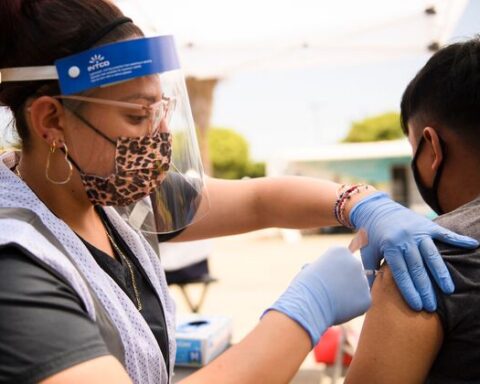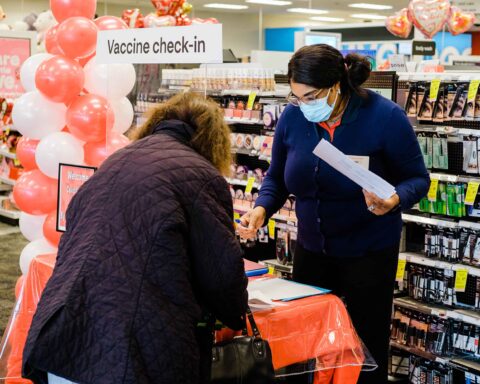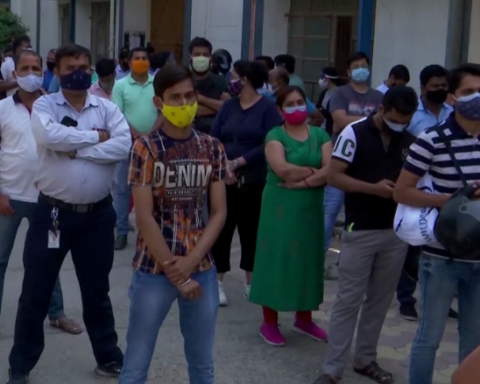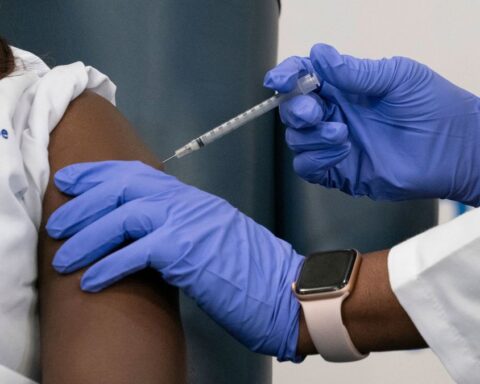And then there were three.
There are now three Covid-19 vaccines authorized for emergency use by the US Food and Drug Administration, manufactured by Pfizer/BioNTech, Moderna and Johnson & Johnson. All three will be distributed across the United States.
Many people are wondering which Covid-19 vaccine they should get: Is one better for certain groups of people? Given how many people still can’t get any vaccine, will people have a choice? If so, which vaccine should they choose?
We asked CNN Medical Analyst Dr. Leana Wen for her advice. Wen is an emergency physician and visiting professor of health policy and management at the George Washington University Milken Institute School of Public Health.
Wen is also a volunteer participant in the Johnson & Johnson clinical trial, though she doesn’t know yet whether she received the vaccine or placebo.
CNN: Can you explain the differences between the three FDA-authorized vaccines? What do we know about their safety and efficacy?
Dr. Leana Wen: The vaccines from Pfizer and Moderna were authorized first, back in December. They are similar to one another in that they are both developed using the mRNA platform. The Johnson & Johnson vaccine has just been authorized. It uses a different way of stimulating an immune response, with an inactivated cold virus. The Pfizer and Moderna vaccines both require two shots. Johnson & Johnson has just been authorized as a one-dose vaccine.
All three vaccines have very favorable safety profiles, meaning that they are all very safe, when tested in tens of thousands of people. All three are virtually 100% in clinical trials at preventing hospitalizations and deaths, which is the endpoint that we really care about.
The Pfizer and Moderna vaccines appear to be more effective at preventing mild to moderate disease, about 95%. The Johnson & Johnson vaccine is about 72% effective, based on US trials. However, these results should not be compared directly, because the trials were not done as head-to-head comparisons.
CNN: Why not? You can see why people would look at those numbers and say, 95% versus 72%? I’ll take the one that’s 95%.
Wen: This is an understandable concern. Here are three reasons why this is not the right comparison.
First, the vaccines were studied at different time periods. The Pfizer and Moderna studies were done before these more concerning variants became a major factor. Also, there wasn’t as widespread disease at the time those trials were run. We don’t know what their efficacy would be if they were studied under the same conditions as the Johnson & Johnson vaccine, or vice versa. That’s why we say that these are not head-to-head comparisons and can’t be weighed one directly against another.
Second, one the main locations where the Johnson & Johnson vaccine was studied was South Africa, where the predominant variant at the time of the study was the B.1.351 variant. There is substantial concern that none of the vaccines we have may work as well against this variant.
Laboratory studies for both Pfizer and Moderna, for example, have shown there is less neutralizing antibody developed against this variant. This suggests they may not work as well in these cases as they do against the variant that was originally the most widespread in the United States. In addition, preliminary studies of two other vaccines in development, Novavax and AstraZeneca, showed these vaccines are less effective against this variant.
For the Johnson & Johnson vaccine, it appears that it, too, is less effective against the South African variant. However, it’s still very effective. Even in South Africa, the vaccine prevented 82% of severe disease (compared to 86% in the United States). Most importantly, in South Africa, there were no cases of hospitalizations or deaths in those receiving the vaccine.
A vaccine that’s effective against this variant is important, especially since other emerging variants also appear to have the same mutation as this B.1.351 strain. Having a vaccine that is clearly effective against this type of mutation is a distinct advantage.
Third, let’s remember that the the Johnson & Johnson vaccine is a one-dose vaccine. This simplifies logistics substantially to not have to make second appointments and allocate second doses. This vaccine can also be stored at refrigerator temperature for months, making it possible for regular doctors’ offices to carry the vaccine — and many people may prefer to go to their doctor’s office to get the vaccine.
They may also prefer “one and done” instead of making two trips, especially when this vaccine appears to be just as effective in the result that matters most: in preventing severe enough disease that results in hospitalization and death.
CNN: What about vaccinated people spreading infection? Do we know whether the Johnson & Johnson vaccine reduces the spread of the virus?
Wen: There is good news on this front, too. This clinical trial looked at whether vaccinated people could be asymptomatic carriers. About two months after they received the vaccine, it appeared that they had a 74% reduction in asymptomatic infections.
This is one of the main unanswered questions about the vaccine. We know that all of the authorized vaccines are really effective at protecting the person getting vaccinated. The question is, do the vaccines also protect the person from carrying the virus and infecting others? There’s growing evidence that this is the case for all the vaccines we have, though we don’t know how good that protection is — and so vaccinated people should still use an abundance of caution and wear masks in public, for example.
CNN: Do we know which people should get what vaccine? For example, should older people or people who are immunosuppressed get a particular type of vaccine?
Wen: We don’t have this information yet, and the FDA and the CDC (US Centers for Disease Control and Prevention) have not made this type of recommendation. These are studies that are being done, and, in the months to come, we could well find this out. Perhaps, we will find out that people of a certain age group or with certain underlying medical conditions do best with one vaccine over another. In that case, people can get that vaccine then.
The key right now is to not wait. Get the vaccine that you have access to first.
CNN: What about pregnant individuals and children? Are the vaccines safe for them?
Wen: None of the vaccines have been specifically studied with pregnant or breastfeeding individuals, though women have a choice to take them. (Dr. Wen previously discussed the decision in this Q&A.) They are soon to be studied in these populations. The Pfizer vaccine is authorized for those 16 and older, the others in 18 and older. Studies are underway for younger children, but as of now, vaccines aren’t available for children yet.
CNN: Let’s talk bottom line: What vaccine would you recommend someone take?
Wen: Bottom line: Take the vaccine that you are offered. All three vaccines are safe and effective. Think about other vaccines we take, like for the flu vaccine. Most of us don’t ask which company manufactures it. We just care that it works. There are advantages to all the vaccines, and again, since they haven’t been studied head-to-head, we have no way of knowing exactly which vaccine is “best” and for whom.
Right now, supply is the limiting factor. Most people are not going to have a choice. It may be that your doctor’s office or pharmacy or mass vaccination site will only have one type of vaccine. If that’s what you have access to right now, you should take it, as opposed to waiting for an unknown period of time for another vaccine.
That’s the advice that I give to my family members and patients. It’s also the advice that I am taking myself. I should find out soon whether I received the vaccine or placebo as part of the Johnson & Johnson clinical trial. If I received the placebo, I’ll be happy to take whatever vaccine is available to me first (which will likely be the Johnson & Johnson vaccine).
Remember that taking a vaccine doesn’t mean you are forever committed to it. Pfizer and Moderna are studying booster shots that target specific variants. Johnson & Johnson is doing the same testing, and they’re also studying a two-dose vaccine to see a second dose enhances the protection of the first. In the months to come, when there is more supply and more research on which vaccine is better for which group of people, you may be able to get another vaccine.
That’s why the bottom-line advice is this: Get the vaccine you have access to as soon as you can. Getting a high level of immunity right now protects you and others around you. It also helps us to reach herd immunity sooner as a society.





